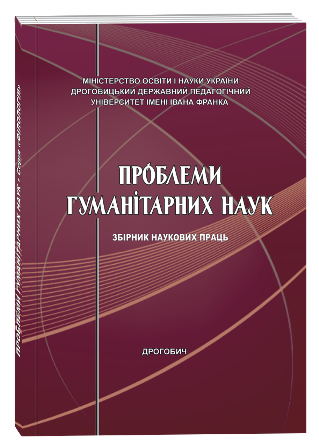STRATEGIZING DISCOURSE: BUSINESS ENGLISH IN POLITICAL ENVIRONMENTS
DOI:
https://doi.org/10.24919/2522-4565.2023.56.7Keywords:
political narrative, political discourse, English business language discourse, English-language political discourse, stylistic features, genre differentiation.Abstract
Summary. In the third millennium, English-speaking linguistics is a key science, because it allows you to prolong life and improve its quality. The choice of the research topic is relevant, since modern linguistics is actively developing discursive research, and the problem of English-language political discourse is one of the most important in the world. The purpose of the research presented in this article is to analyze the genre differentiation of English-language political discourse. In modern linguistics, there is a wide range of approaches to understanding the term "discourse". English political discourse is one of the varieties of institutional discourses, which are characterized by certain normative frameworks and specific communicative goals. From a linguistic and sociocultural perspective, political and media discourses are in close interaction. This phenomenon is the subject of more and moreresearch, but is still considered mainly as an interaction of two separate discourses, each of which has its own characteristics. The object of this research is the study of political narrative as linguistic and cultural phenomenon It is a complex discourse that combines political discourse and media discourse. In the future, we will use the term “English-speaking” for marking both the British and American versions of this narrative. We come to the conclusion that the English language is political discourse is a complex system of communication that performs three main functions: informative, evaluative and imperative. Variety of political genres discourse allows politicians to fully inform the public about their activities, shape public opinion and influence decision-making. English-language political discourse is the subject of many academic studies discipline, as it is an important tool of political power and influence on society.
References
Лукіна Л. В. Політичний дискурс : сутність та особливості застосування. Політична культура та ідеологія. 2021. Випуск 2. С. 75–80.
Нагорна Л. П. Політична мова і мовна політика : діапазон можливостей політичної лінгвістики. Київ : Світогляд, 2005. 315 с.
Нагорна О. О. Філологічні ідеї ділової англійської мови, політичного дискурсу та кібернеологізмів у сучасній українській філології. Наукова дискусія. 2023. № 83. С. 3–4. URL : https://sdjscience.com/wp-content/uploads/2023/12/Scientific-discussion-No-83-2023.pdf.
Самойлова І. В., Подвойська О. В. Лексичні особливості політичних промов. Наукові записки Ніжинського державного університету ім. Миколи Гоголя. Філологічні науки. 2016. Кн. 1. С. 235–238.
Серажим К. Дискурс як соціолінґвальне явище : методологія, архітектоніка, варіативність : монографія / за ред. В. Різуна. Київ : Київ. нац. ун-т ім. Тараса Шевченка. 2002. С. 3–13.
Dijk T. A. van. Principles of Critical Discourse Analysis. Discourse & Society. 1993. 4(2). P. 249–283.
Hongxia Dai. Study on Business English Translation Teaching in the Context of Curriculum Ideology and Politics. Curriculum and Teaching Methodology. 2022. Vol. 5. Р. 83–88. DOI: http://dx.doi.org/10.23977/curtm.2022.050417.
Interpals. Meet the world. URL: https://interpals.net (дата звернення : 20.06.2021).
McNair B. An Introduction to Political Communication, 6th ed. London and New York : Routledge. 2018. 252 p.
Nimmo D., Combs J. Mediated Political Realities. New York : Longman, 1983. 240 p.



